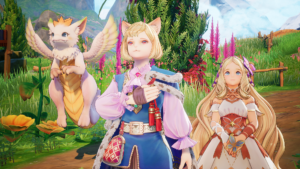Square Enix is bringing back one of the most important adventure games of all time, The Portopia Serial Murder Case, but as what it’s calling an “AI Tech Preview.”
This new version of the game, which Square Enix is careful to call an “educational software demonstration,” will be free-to-play on Steam starting on April 23, 2023. It uses an “AI” technology including Natural Language Processing (NLP), and Natural Language Understanding (NLU), in an effort to let players more intuitively interact with NPCs. It also includes Speech to Text options that allow players to use voice input.
While it’s done in a similar style to AI chatbots, it’s important to note that this isn’t the same technology that’s used in chatbots like ChatGPT and Google Bard. That technology is known as Natural Language Generation (NLG), and apparently, this version of Portopia included it at one time but Square Enix removed it due to the risk of “generating unethical replies.” The game’s Steam page states “We will consider reintroducing this function as soon as our research succeeds in creating an environment in which players can enjoy the experience with peace of mind.”
The Portopia Serial Murder Case is a seminal adventure game that’s cited as one of the biggest influences on Japanese-RPGs. It was the first hit from Dragon Quest creator Yuji Horii, and a lot of the storytelling techniques present in Portopia would go on to be used in the flagship series. Well-known creators like Hideo Kojima and Eiji Aonuma have also cited Portopia as a major inspiration. Despite Portopia’s success, the game was never released outside of Japan, which means this release is the first time it’s been officially localized in English.
This is also just one example of a video game-focused company experimenting with AI. Nvidia recently introduced its text-to-video conversion AI model called VideoDLM. This system is capable of producing videos with a resolution of up to 2048 x 1280 and a frequency of 24 frames, just by using a text description. Developers have also been using systems like ChatGPT to recreate classic games like Tetris and Snake.




